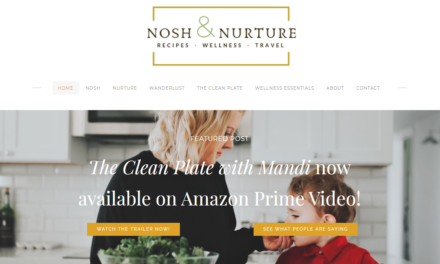The Other Side of the Coaxial Cable
It’s easy to assume that virtually all content providers support a free, open, and neutral internet unsullied by bandwidth throttling, paid prioritization, and blocked content; however, the issue is not so simple for many. Some believe that the government-backed preservation of Net Neutrality will stagnate progress and lead to higher costs for content creators and consumers anyway.
“Classification of broadband networks as a public utility will create new taxes and fees from the FCC and localities that will amount to billions of dollars and make services more expensive for consumers,” says Erik Telford, SVP for the Alexandria, Va.-headquartered Franklin Center for Government and Public Integrity. “Outdated, burdensome regulations will stifle the adoption and implementation of improved broadband technologies that allow content creators to share dynamic, engaging new content.”
In Telford’s view, embracing competition between broadband providers-rather than supporting Net Neutrality control imposed by Uncle Sam-is the right path forward toward more widespread adoption of innovative new services.
Mike Boracci, VP of internet operations and marketing for Denman Brooks & Co., concurs. “It is the unregulated internet that has created the massive growth we are seeing-the kind of growth that allows a service like YouTube to become a monster of digital video content delivery. This has created a massive consumer demand for more video content, which helps drive the economy forward,” says Boracci.
But now that ISPs will be forced to deliver all content equally, it will have a negative effect in the long term because new and innovative services will not be able to emerge, he continues. “Providers of high-quality content will not be able to cut the deals they need to move the massive amounts of data that are now required to be passed from one section of the internet to another. High-definition video providers, for example, will have to downgrade the quality of their content to fit within [government-regulated] bandwidth usage guidelines,” Boracci says.
However, Walsh contends that government regulation is necessary to preserve Net Neutrality, and the only content providers that are going to be happy if a neutral internet is nixed someday are the ones owned by the ISPs.
“Without Net Neutrality, an ISP could degrade connections to Netflix in favor of its own streaming video platform. There could even be tiered service, where basic internet gets you access to content owned by the ISP, and you need to upgrade to premium internet for workable access to Netflix or independent creators,” says Walsh. “If you look at the long list of Comcast-owned content companies, you can imagine a variety of such scenarios, from news to sports to movies to TV series.”
What Content Creators Can Do
Experts recommend that content creators who are passionate about preserving Net Neutrality going forward should stay abreast of the issue and, when necessary, contact the FCC as well as their representatives in Congress to rally support for Net Neutrality. “Also, write and publish articles to raise awareness of the issue among your audiences,” says Dan Shewan, web content specialist with WordStream in Boston.
Net Neutrality may be safe for now, but some ISPs have vowed to fight. Digvijay Katoch, an ebook author from London, says content creators should always be preparing for worst-case web scenarios. “The best strategy is to prepare for the storm and learn to adapt, change, and grow. For example, in the past, print marketing professionals learned to turn into digital marketing professionals and then transformed themselves into direct publishers and strategists,” says Katoch. “You can’t afford to lack ideas or creativity. Content providers who create great content will always be in demand, so you have to hope that users will find a way to keep their favorite content providers and vice versa.”
One backup approach is to examine different advertising and/or subscription pricing models that fit their demographics, suggests Dan Goman, founder and president of OWNZONES, a content aggregation service based in Phoenix.
“Start testing payments and services-rental versus buying, unlimited versus timed access,” Goman says. “And investigate partnering with distributors and platforms that are built for high speed, with big pipes and ecommerce solutions already in place.”
One survive-and-thrive idea worth pursuing if Net Neutrality had been struck down, floated by Advertising Age writer Tim Peterson, would’ve been to seek subsidized bandwidth opportunities. In other words, strike deals with advertisers to sponsor a site, service, or segment (e.g., Coca-Cola sponsoring access to American Idol on Hulu).
Andy Dean (CEO of ConnectPal, a Los Angeles-headquartered digital content distributor) says there is actually very little that content providers can do to plan for a non-neutral internet other than mentally fortify themselves. “I equate the situation to an impending hurricane. Yes, you know it’s coming and can plan for it, but if a Category 5 storm hits, it’s going to wipe you out no matter how much you prepare. If the equivalent of a Category 3 storm hits, you might survive, but it won’t be easy,” says Dean. “For example, if I have to pay for fast lanes, I’m going to have to pass 100% of those costs on to my subscriber customers.”
One outside-the-box measure that some content creators may want to consider in a hypothetical non-neutral internet future is thinking beyond American borders, Whang predicts. “Publishers and content providers can always move overseas. The world market is growing fast outside of the U.S., and without Net Neutrality in America, it would be a much better idea to target users outside our country,” says Whang.
A last-ditch strategy? If you can’t beat ’em, join ’em. If Net Neutrality is ever struck down, “there will be a huge opportunity to establish new internet carrier businesses to compete with the big ISPs,” Whang says. “Remember in the 1990s when there was primarily AOL, but many other ISPs arose? Content providers can consider jumping into this arena.”
A Cloudy Forecast
When asked to predict how the Net Neutrality issue will shake out in the coming years and decades, the experts express a variety of opinions and prognostications. “I predict that FCC chairman Tom Wheeler will do the right thing-what nearly 4 million Americans have asked him to do-and give us effective Net Neutrality rules. But we’re up against a very powerful telecom lobby, and there’s a long way to go yet in the process,” Walsh says.
Dean also foresees a positive outcome for Net Neutrality supporters in the long run. “I think the internet is probably going to stay similar to the way it is now. Once they start tinkering with the status quo, it could be very bad for the economy,” says Dean.
Goman, on the other hand, expects Net Neutrality to be compromised within 2 years. “The [Obama] administration wants to regulate the internet as a utility. This will not happen with the new GOP-controlled Congress. I do expect a long battle, but some kind of fast-lane bill will be passed before the 2016 elections,” says Goman.
Shewan also has his doubts that Net Neutrality can survive. “Widespread public indifference to the issue is a big hurdle–the fact that most people don’t know or care what Net Neutrality is,” he says. “Even if the current battle is won, the war will be far from over, and the telecom industry isn’t likely to give up without a fight. I believe it’s only a matter of time before lobbyist dollars triumph over fairness and equality.”






